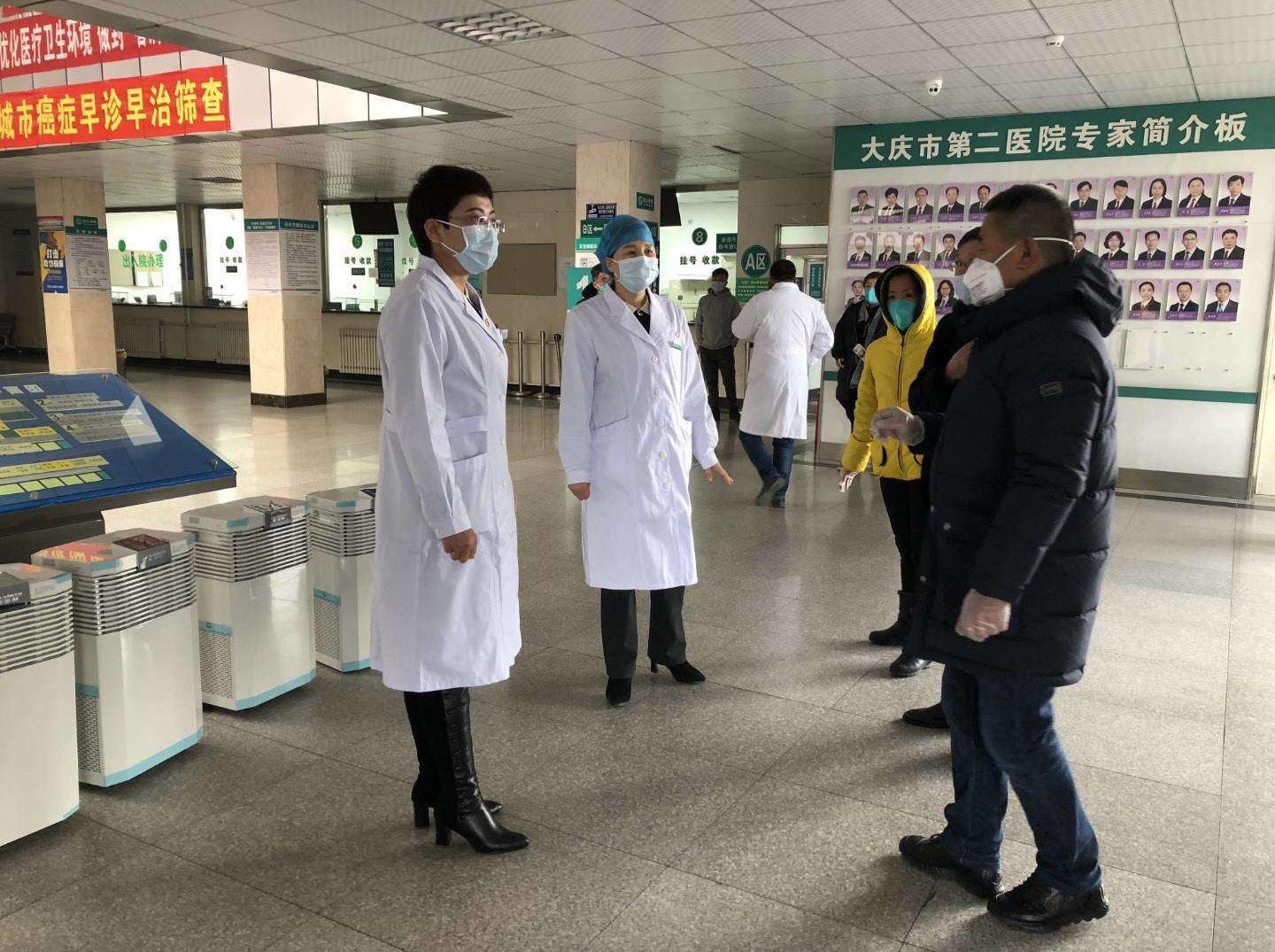
6 minute read
ADVICE FOR BUSINESSES NAVIGATING THE CORONAVIRUS
The coronavirus.
Air purification units donated by A.O. Smith arrive at Chinese hospitals.

From checking contracts to remote work, advice for navigating the coronavirus
IT IS MORE a matter of when, not if, the coronavirus will spread widely in the United States.
“The data … and the spread in other countries has certainly raised our level of our concern,” Dr. Nancy Messonnier, director of the National Center for Immunization and Respiratory Diseases, said during a Feb. 25 conference call. “We don’t know exactly when it’s going to happen.”
By March 6, the total number of confirmed U.S. cases of the coronavirus or COVID-19 had climbed to more than 200, including 14 deaths. That’s up from 14 confirmed U.S. cases on Feb. 25, when Messonnier issued her warning. Worldwide, there were more than 100,000 confirmed cases of coronavirus and more than 3,400 related deaths at press time.
“We really want to prepare the American public for the possibility their lives will be disrupted,” she said.
She encouraged businesses to be flexible in responding to the spread of the virus. The CDC’s recommendations for businesses included the possibility of more telecommuting, flexible work hours or staggered shifts, and planning to operate with increased absenteeism.
David Wangrow, assistant professor of strategic management at Marquette University, said the companies that handle the coronavirus best across industries will be the ones that plan ahead.
That advance planning could come in a variety of forms, from having multiple suppliers in different geographies for components to identifying what it would take to accommodate more remote work. Arthur Thomas, staff writer
“I’ll bet you a lot of companies … they’re going around and digging into their supply chain and seeing where the risks are,” he said. “Hopefully it has people asking some greater questions.” Kate Wegrzyn, a partner at Foley & Lardner LLP, said companies should be communicating with their suppliers, regardless of where they are located.
“You want to start talking to them early. Even if they’re not located in China or some of the more affected regions, they may have subcomponents of that component that come from that place, so you need to make sure you’re talking with them early to make sure they can get the parts they need,” she said.
Wegrzyn said Foley & Lardner has seen an increase in the number of clients asking the firm to prepare
12 / BizTimes Milwaukee MARCH 16, 2020 force majeure notifications to let customers know they may not be able to deliver product on time.
“Force majeure provisions are provisions that essentially relieve you from liability for not performing under the contract under certain circumstances,” Wegrzyn said. “Pandemic and disease may or may not be included in that, but the general ‘any cause beyond your reasonable control’ would be broad enough to capture that.” She said it is important for companies to look at their contracts early because some contracts include time limitations for when a company has to provide notice to their customer.
“As the global scale of this increases and just about every company is impacted in some way, I think more and more they’ll be looking to their contracts to find out what, if any, protections they have if they’re not able to perform,” Wegrzyn said.
Beyond looking closer at supply chains, Wangrow said companies should look at more day-today things. If remote work is not a common practice in an office, a company may need to evaluate what would need to happen to make it possible.
“The good management practice would be to get people together, talk about what would work well with that, talk about where some of the limitations would be,” he said.
Wangrow said restaurants and other service industries may be faced with several weeks of reduced traffic and may need to evaluate temporary changes in their business model. He said the best ideas for how to navigate through the challenge may come from employees. While larger companies likely have the resources to navigate
through the virus, Wangrow said his biggest concern is for smaller firms, adding companies will need to fall back on what they stand for. “When you’re faced with hard decisions you always go back to what do we stand for, what are the things that ultimately are most important when we’re in a critical situation,” he said.
Depending on how severe and prolonged the spread of the virus is, Wangrow said companies may find themselves in difficult financial positions. If that’s the case, he said it is best to be open with employees and show as much loyalty as possible.
“My view is always more communication is good … open communication, talking about the situation, talking about the challenges, I think people want that and it builds a lot of trust,” he said. “I really believe that if you do the best you can for your employees when you’re in a difficult situation, they’re likely to reciprocate.”
Area companies have already been taking stock of the coronavirus, including Milwaukee-based A.O. Smith, which has a consumer brand in China and generates nearly a third of its revenue there. When A.O. Smith reported earnings in late January, executives said it was too early to know how the virus would impact its operations. At the time, the company’s president and chief executive officer, Kevin Wheeler, said employees were yet to come back from the Chinese New Year holiday and the scope of the virus remained unclear.
“We’re going to have to get a lot more data on how consumers are behaving before we enter into some further guidance and speculations,” he said.
The maker of water heaters and air and water purification systems excluded the potential impact of coronavirus from its initial guidance for the year. However, A.O. Smith said in late February the situation “will have a material adverse impact” on first quarter operating results.
“The duration and intensity of the impact of the coronavirus and resulting disruption to our operations is uncertain,” the company said in a securities filing. “While our global supply chains are currently not affected, it is unknown whether or how they may be affected if such an epidemic persists for an extended period.” While concerns about the virus might seem to drive demand for A.O. Smith’s products, the company said in its filing that most of its stores have been temporarily closed or are operating at reduced hours. “In addition, as a significant portion of our products in China require installation by a professional, actions taken to contain the spread of the virus have, in certain cases, limited access for installation,” the company filing said.
A.O. Smith has also contributed to efforts to limit the spread of the virus, donating and installing 2,000 air purification units along with dozens of water heaters and commercial water purifiers to hospitals across China.
Blake Moret, chairman, president and CEO of Milwaukee-based Rockwell Automation Inc., said in February that his company is mitigating and managing the impact of the virus while also protecting its employees in China, where the company generates a little more than 5% of its sales.
“Some of the moves we made to mitigate tariffs in terms of moving parts of our supply base around are helping to mitigate the impact of coronavirus on our business,” he said. n
Plasti-Coil / Tri-Tec Corp

Manufacturing










